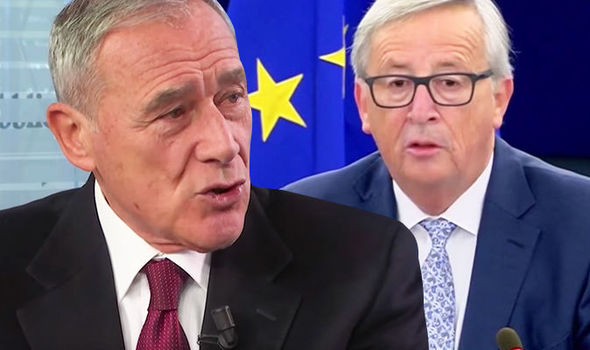
The political atmosphere in Italy took a tumultuous turn as EU Commission President Jean-Claude Juncker’s gloomy forecast regarding the upcoming Italian election sent shockwaves through the Milan stock exchange. Juncker’s cautionary words on the possibility of “ungovernability” in Italy elicited a swift and pointed response from the Liberi e Uguali (LeU) party, urging the EU Commissioner to refrain from prematurely passing judgment on the election outcome.
In a scathing statement, the LeU party accused Juncker of sounding an “alarm” without due cause, emphasizing the need for him to focus on addressing the challenges that have unfolded during his tenure as EU Commission President. The exchange highlighted the increasing tension between the EU and certain member states, with Italy becoming a focal point of concern due to its crucial upcoming election.
Jean-Claude Juncker’s warning of a “worst-case scenario” after the 2018 Italian Election reflected the European Union’s apprehensions about the potential emergence of a “non-operative” government. The specter of ungovernability, as articulated by Juncker, raised fears of destabilization within the already-fragile member state. He underscored the significance of early March, marking a crucial week in Europe with the results of the Social Democratic Party (SPD) referendum in Germany and the Italian election.
Juncker’s admission that the Italian election worried him more than the SPD vote reflected the broader concerns within EU circles about the repercussions of political outcomes in a key member state. The EU’s preparations for a worst-case scenario included considerations for Italy’s failure to form an operative government, a scenario that could have profound implications not only for Italy but also for the stability of European markets.
However, the irony unfolded as Juncker’s own statement triggered losses at the Italian stock exchange market. The market’s reaction underscored the delicate nature of the relationship between political pronouncements and financial markets, revealing the interconnectedness of politics and economics in the modern global landscape.
As Italy braces itself for a pivotal election, the clash between Juncker’s warnings and the market response underscores the heightened tensions surrounding the political fate of this EU member state. The upcoming weeks promise to be critical for both Italy and the European Union, as they navigate the complexities of political transitions, economic stability, and the ongoing challenges of governance within the supranational framework.
RELATED ARTICLES
- Hungary Becomes First EU Country to Congratulate Putin for Winning the 'Elections'
- EU to use Russian assets to buy arms for Ukraine
- SHOCK! Hungary's PM Calls for Violence in EU capital Brussels Against EU Leaders
- Russia tells EU to F*** Off, saying they will Not Return Romania's 91.5 Tons of Stolen Gold
- EU Orders Russia to Return Romania's Stolen Gold Reserves











